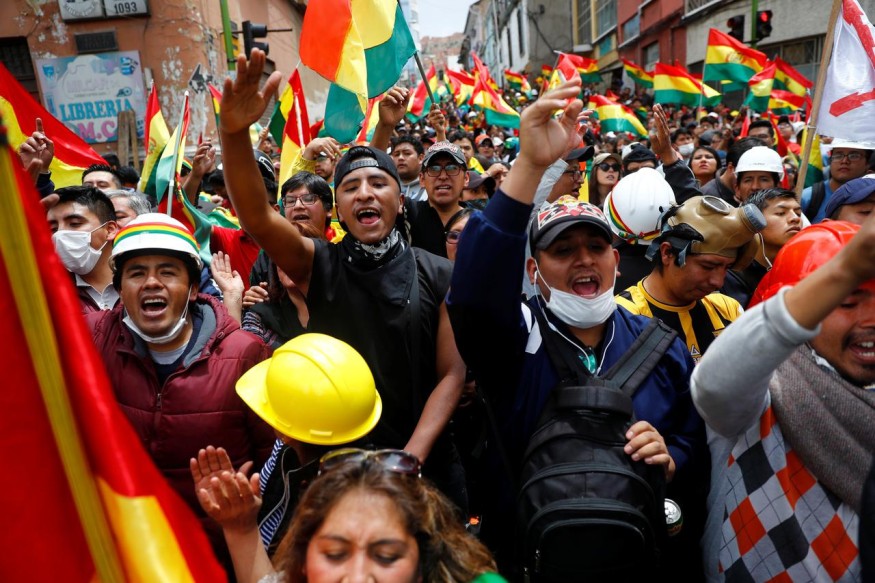Bolivia's Interim President Jeanine Anez Chavez Must First Prove Her Legitimacy as a Leader

As you may recall, Bolivia's former president, Evo Morales, stepped down from his office after 14 years in power due to wide election fraud on October 22, 2019, based on a report by the Organization of American States, or OAS.
After the revelation of the OAS, mass protests were held and the military pressured him to resign his office. In an interview with the head of Bolivia's army, General Williams Kaliman said that he asked Evo Morales to resign after his armies joined the protesters.
With this happening in Bolivia, the country's opposition leader and senator Jeanine Anez Chavez replaced Morales as the interim president of the country. However, she is now facing many challenges, one inparticular is concerning her legitimacy.
BUT WHO IS JEANINE ANEZ CHAVEZ?
- Jeanine Anez Chavez is 52 years old and was the opposition leader during the era of exiled president Evo Morales. She is a lawyer by profession and a former media executive. Chavez started her career in politics in 2006 as a member of the constituent assembly and was elected as a Senator in 2010 and reelected in 2014 to the same position.
Behind her impressive track record, she was still questioned about her political capabilities in handling the economic problem and stability of the country. According to a professor from Florida International University in Miami Eduardo Gamarra that the role of Chavez is to do three things in her remaining two months that will end on January 22, 2020 and these are to remain in office during the unrest of the country, call for elections, and reassemble Bolivia's electoral tribunal. However, Gamarra added that this is a huge problem assuming Bolivia's new leader only has two months left.
In an article published in NBC News, Gamarra said that he is afraid of the path that Bolivia is going down. History may repeat itself where the country has no president and no congress. And that is his greatest fear as well as the fear of the people in Bolivia.
Meanwhile, Sanchez assumed the role as Bolivia's new leader on Wednesday, and has insisted on having an election as soon as possible. However, Bolivia's new leader announced on Thursday that Morales and his Vice President Alvaro Garcia cannot run for office because they have been barred, but Morales' socialist party, MAS, can participate in the election.
Jeanine Anez Chavez seems to have the support of other institutions that includes the military and police. She is also recognized by other countries such as the US government, the United Kingdom, Brazil, Colombia and others in Latin America. On the other hand, Mexico does not recognize Chavez as Bolivia's new leader. This likely stems from the fact that the Mexican government is a sympathisezer and supporter of Morales, besides, Mexico offered asylum to the evicted president.
Chavez had this to say in regards to the actions taken by the Mexican government, "We have to let the Mexican government know that that cannot be happening," and she also criticized the Mexican government for allowing the supporters of Morales to have a rally in Mexico.
Despite what happened to Evo Morales, he still has the support of Mexico and other left-leaning countries in Latin America including Argentina which has a significant Bolivian population.
Subscribe to Latin Post!
Sign up for our free newsletter for the Latest coverage!

















